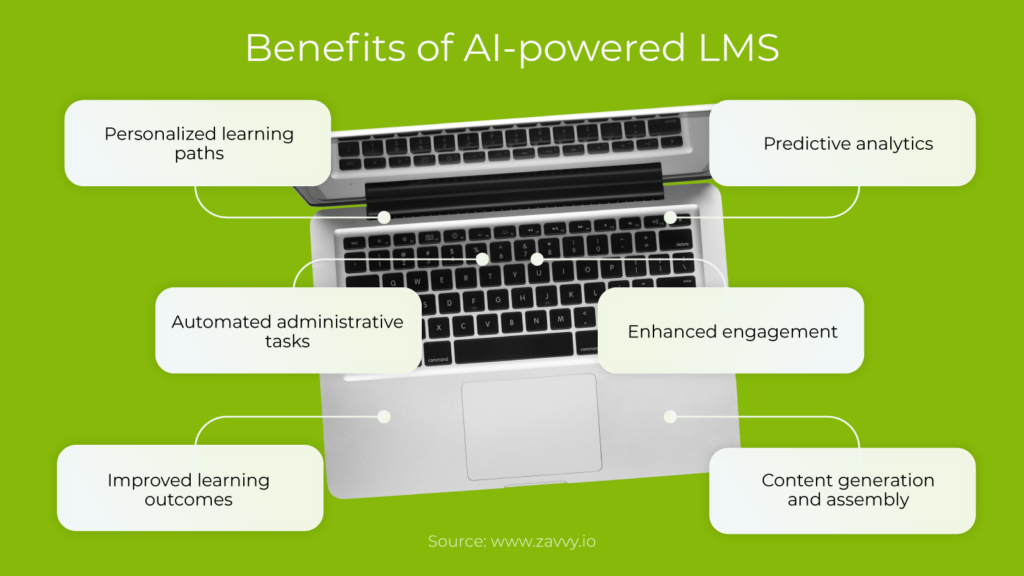Essential strategies for success in skills management

In an era where adaptability is mandatory, we often find ourselves confronted with a fresh software update, an unexpected shift in market dynamics, or an unfamiliar role at work.
Stagnation is no longer an option; the modern professional landscape demands that we not only keep up but excel and innovate. Consequently, the imperative to consistently develop, update, and manage our skill sets has reached unprecedented levels of importance.
But with such a vast and ever-evolving knowledge landscape, how can one ensure they’re not just keeping pace but leading the charge?
This article aims to delve deep into the intricacies of skill management, exploring its nuances and offering actionable insights. We’ll unpack the methodologies behind effective decision-making, skill acquisition and refinement, providing you with a toolkit of strategies designed to help you flourish amidst the ebbs and flows of today’s dynamic professional terrain.
The evolution of skills management
From traditional methods to dynamic approaches
The days when mastering a singular skill set could carry one through an entire career are gone. Think back to stories from our grandparents, who often spoke of dedicating four decades to a single profession or company.
Yet, in our current era, marked by an unparalleled surge in information and swift technological evolution, leaning exclusively on age-old methods is much like opting for a typewriter in a world dominated by digital devices.
The rules of the professional playbook have been rewritten, necessitating a fresh and adaptive approach.
The impact of technology
Technology’s footprint is evident in virtually every aspect of our lives, weaving its intricate patterns into our daily routines, work methodologies, and even leisure activities. This pervasive integration has especially transformed the domain of skills management.
As we navigate this digital age, we’re witnessing groundbreaking innovations like AI-driven educational platforms that provide personalized learning experiences tailored to individual needs.
Additionally, immersive virtual reality training modules transport learners into realistic, simulated environments, allowing for hands-on experience without real-world consequences.

These technological advancements are not merely supplementary; they are rapidly becoming the mainstay of professional growth.
The conventional classroom settings and traditional instructional methods, while still valuable, are increasingly being enhanced, and in some instances, supplanted by these avant-garde tools.
The bar for professional development and skill enhancement has been raised, prompting individuals and organizations alike to embrace these state-of-the-art resources to remain competitive and relevant in a constantly evolving landscape.
Why skills management is essential in today’s world
Navigating a rapidly changing marketplace
Today’s markets are characterized by an unprecedented level of volatility. The once-predictable business landscape is now riddled with uncertainties. Up-and-coming startups are challenging the dominance of long-established industries, bringing forth innovative models and solutions that are rapidly reshaping the playing field.
Additionally, global occurrences, from economic shifts to unforeseen events, are continuously altering organizational priorities and strategies. Amidst this turbulent environment, there’s a clear distinguishing factor between companies that merely survive and those that truly thrive: adaptability. And where does this adaptability stem from? It’s deeply rooted in a workforce proficient in skills management.
When employees are empowered with the ability to learn, unlearn, and relearn skills needed again, organizations become agile, ready to pivot in response to the ever-changing demands of the market. In essence, mastering skills management isn’t just a value-add; it’s a crucial component for sustainable success in today’s fluid business world.
Building a resilient and adaptive workforce
An adaptive workforce, much like a Swiss Army knife, is a beacon of multifunctionality and preparedness. Just as this iconic tool boasts a myriad of features designed for a wide array of tasks, an adaptive team possesses a diverse range of skills ready to tackle the myriad challenges presented in today’s volatile business environment.
This versatility doesn’t just occur by chance; it’s cultivated through strategic skills management. By continuously investing in training, development, and upskilling initiatives, businesses can ensure that their teams are not only equipped with the requisite knowledge but are also agile enough to pivot in response to shifting landscapes.
This proactive approach to skills management ensures that organizations are not just reactive to change but can anticipate, adapt, and capitalize on evolving circumstances, driving innovation and staying ahead of the curve.
Key strategies for effective skills management
Continual learning and development
Do you recall the exhilaration of unraveling a new concept or skill? The journey of continuous learning isn’t just about staying updated in our respective fields; it’s about fueling our innate curiosity and reigniting the fervor for knowledge that we often associate with our younger selves.
In this digital age, avenues for learning have expanded exponentially. Online courses, workshops, and seminars are readily available, offering insights into diverse subjects and domains.
By embracing these opportunities, we not only enhance our professional toolkit of skills matrix but also cultivate a mindset of perpetual growth and discovery. Commit to the enriching path of lifelong learning, and keep that spark of curiosity forever alive.
Regular skills assessments
Picture yourself preparing for a marathon but never once using a stopwatch to gauge your progress. Without these periodic checks, how would you know if you’re improving or if your pace aligns with your goals? Similarly, regular assessments in our professional or personal journeys serve as these critical checkpoints.
They provide a clear snapshot of where we excel and where we might be lagging. By pinpointing these areas, assessments guide our next steps, ensuring our efforts are channeled effectively. They lay down a roadmap for focused growth, making sure that every stride we take is purposeful and in the right direction.
Creating a culture of feedback
Constructive feedback, in its essence, can be likened to the essential elements a plant needs to thrive: water and sunlight. Just as these components nourish a plant, enabling it to grow and bloom, feedback serves as a vital nutrient for personal and professional growth.
It sheds light on areas of strength and highlights avenues for improvement. In the business realm, when companies create a culture where feedback is not only accepted but actively sought, they lay the groundwork for ongoing development.

This nurturing environment propels employees forward, ensuring that their skill sets evolve in tandem with the ever-changing demands of the professional world.
Overcoming challenges in skills management
The resistance to change
Inherently, humans gravitate towards the comfort of routine and familiarity. This instinctive tendency to stick to what we know often leads us to resist change, preferring the cocoon of the known over the uncertainty of the new.
Yet, in our ever-evolving global landscape, this reluctance to adapt and embrace change can be a significant roadblock. As the pace of innovation accelerates and industries transform, holding onto outdated methods and mindsets can hinder progress.
Recognizing this innate resistance is the first step. By confronting and managing it directly, understanding its roots, and actively seeking strategies to overcome it, we position ourselves for more effective skills management. This proactive approach ensures that we remain agile and responsive, ready to meet the challenges of the modern world head-on.
Balancing technical and soft skills
While there’s no denying the value of technical proficiency in today’s specialized job market, the role of soft skills remains paramount. Qualities such as empathy, effective communication, and teamwork are often the unsung heroes behind successful professional journeys.
They are the intangible assets that transform an individual from merely being proficient at a task to excelling in a team environment and fostering collaborative success.
Indeed, the brilliance of a professional isn’t solely determined by their technical acumen but by their ability to mesh that expertise with interpersonal aptitude. Achieving this harmonious blend of technical skills and soft skills is not just desirable, but essential for holistic professional growth.
The future of skills management
Embracing AI and automation
Embrace the dawn of the digital age, and don’t be daunted by the rise of robots! When leveraged appropriately, AI and automation emerge not as adversaries but as powerful collaborators.
These technological marvels possess the capability to meticulously analyze skill sets, pinpointing areas where enhancement is needed.
Moreover, they can suggest optimal learning trajectories tailored to individual needs, and even assist in delivering targeted training modules.

Instead of replacing human roles, they enhance our capacities, ensuring that we’re not just keeping pace with the evolving landscape but consistently staying a stride ahead.
In this symbiotic relationship, technology serves to elevate human potential, paving the way for continued growth and innovation.
Fostering a growth mindset
Possessing a growth mindset—a conviction that our capabilities aren’t just innate but can be cultivated through persistent effort and dedication—sits at the heart of successful skills management. This perspective shifts the focus from mere talent to the potential of development.
By wholeheartedly accepting challenges and reframing setbacks not as dead ends but as invaluable learning experiences, we create a fertile ground for personal and professional evolution.
Such an approach not only fuels our drive to improve but also fosters resilience, enabling us to navigate the twists and turns of our journey with determination and optimism. In this realm, every experience, positive or negative, propels us forward, adding layers to our growth narrative.
Final Word
Mastering the art of skills management has become a critical component in today’s competitive professional landscape.
Excelling in this area isn’t merely a feather in one’s cap—it’s a fundamental necessity. Given the unpredictable nature of our global environment, adaptability isn’t just a desirable trait; it’s the bedrock of sustained success.
As such, the manner in which we manage, hone, and continually adapt our skills through strategic skills management practices directly influences our trajectory in the professional world.
The methodologies conceptual skills and strategies underscored earlier present a comprehensive framework for skills management. They equip you with the necessary tools to not only respond to changes but to anticipate and lead them, ensuring you remain at the forefront of your field.
With this knowledge at your disposal and a clear focus on effective skills management, you are well-prepared to navigate the ever-evolving terrains of the contemporary professional world, meeting each challenge with determination and agility.
Discover how DevSkiller can enhance your skills management software initiatives.
Schedule a demo with one of our product experts or watch this quick 5-min demo video to find out more.
FAQs
- How often should skills be assessed?
Ideally, skills should be assessed regularly, ranging from once a quarter to once a year, depending on the industry and role.
- Are online courses effective for skills development?
Absolutely! Online courses offer flexibility and a plethora of options, making them an excellent resource for continuous learning.
- How do companies cultivate a feedback culture?
It starts from the top. Leaders must lead by example, actively seeking feedback, and creating a safe environment for open communication.
- Why is there a resistance to change?
Change often brings uncertainty. Humans, by nature, seek comfort and predictability, which is why there’s often resistance to new methods or ideas.
- Can soft skills be taught and developed?
Yes, while some individuals might have a natural inclination, soft skills can be developed through training, mentorship, and practice.
Share post